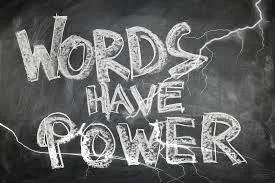We have rules that guide our behaviour
many (if not all) of which we are unaware! Psychologists tell us that we behave
as we do because of certain rules we have constructed over time. These rules are
so deeply ingrained in our subconscious that we would find it hard to
articulate the rationale for doing what we do or feeling how we feel. The great
Albert Ellis said:
“Too many people are
unaware that it is not outer events or circumstances that will create
happiness; rather, it is our perception of events and of ourselves that will
create, or uncreate, positive emotions.” Albert Ellis
Quotes
Where do these rules come from?
Do we learn them from others and if they are unconscious ‘belief rules’ how can
we get to know them? I think it’s true to say that our ‘rules of engagement’
with the world around us are indeed learned but what’s the likelihood of ever
learning what they are? This would be insightful, new knowledge which would
have benefits for the learner. What if some or most of these ‘thinking rules’
were unhelpful or self-defeating? Knowing this we could then, if we so chose,
find better ways of seeing the world; perceiving it in a different way.
Our reality is forged within the
contexts in which we are socialised. Every interaction we have with others and
with our environment, our ‘habitus,’ will determine how we view ourselves,
others and the world in general.
‘Habitus is one of Pierre Bourdieu’s most influential yet ambiguous concepts.
It refers to the physical embodiment of cultural capital, to the deeply
ingrained habits, skills, and dispositions that we possess due to our life
experiences.’ Habitus
Our learning within our ‘habitus’
is connected to events and happenings but do they themselves constitute our
experience of them or is there other things to factor into the equation? When
we are subject to an event or happening we are called upon to assess that happening. What does it
mean? If a young person (let’s call her Sally) consistently sees positive
examples of interaction between others and herself where each player shows
respect and kindness to each other she will draw certain conclusions about what
she experiences, she will attach meaning or meanings to those events. These
meanings are constructed by the individual in relation to what is happening
around her.
‘People
construct their own understanding and knowledge of the world, through
experiencing things and reflecting on those experiences.’ Constructivism
What kind of ‘thinking rules’
might the young person have constructed which will inform and direct the
choices she will make in various situations? According to Rational Emotive
Behaviour Therapy (REBT) theory
created by Dr. Albert Ellis in the 1950’s we construct ‘habits of thinking’
that can be either helpful (rational) or unhelpful (irrational) in pursuing the
goals we set ourselves. Those that are helpful to us are characterised by
attitudes that accommodate the unfairness and unpredictability of life. For
example when confronted with a problem, the resilient person may feel
disappointed/inconvenienced. Another person who is less resilient may
experience extreme anger and embitterment. These contrasting dispositions are
linked a particular mindset of each individual which each has constructed and
which guide how each feels and behaves.
Sally would believe that:
She doesn’t expect things to always go her way and when problems arise
she can handle the inconvenience. The situation is not catastrophic, there are
many more issues that cold be worse than this. Life can be unfair but she
expects that his can be so!
Another might believe:
Things must be the way she wants them to be. This should not happen and
she can’t stand this big imposition. Life is unfair and bad things always
happen to her! This is the worst thing that can happen!
Each perspective or estimation of
the event will result in different behavioural and emotional consequences for
each. The event is not entirely to blame for the behavioural and emotional
outcomes experienced by the person. According to Marcus Aurelius:
“If you are distressed by anything external, the pain is not due to the
thing itself, but to your estimate of it; and this you have the power to revoke
at any moment.” Marcus Aurelius 180AD
 |
| Stoic Philosopher Marcus Aurelius |
These ideas have been around for
millennia and Albert Ellis incorporated this philosophy in his Rational Emotive
Behaviour Therapy counselling/psychotherapy model. Can these principles be
conveyed to students in the school setting?
They can and have been introduced
to students in many schools (preschool – year 12) around Australia very
successfully. Giulio oversees the implementation of Rational Emotive Behaviour
Education in his school in South Australia. This is the fourth year this whole
school mental health education/promotion/prevention program has been in place
and outcomes have been very positive to date for students. He has set up the Centre
4 Rational Emotive Behaviour Education which provides free professional
learning to educators, counsellors and allied agency workers. This is the third
year of its operation and feedback is always very positive in terms of its
usefulness to participants who attend the ten workshop program.
The workshops cover the understanding
and application of REBT in the school setting. The application of REBT in daily
teaching practice is called Rational Emotive Behaviour Education. For more
information about workshops and other questions regarding REBE please contact
Giulio on lozzog@gmail.com.
























